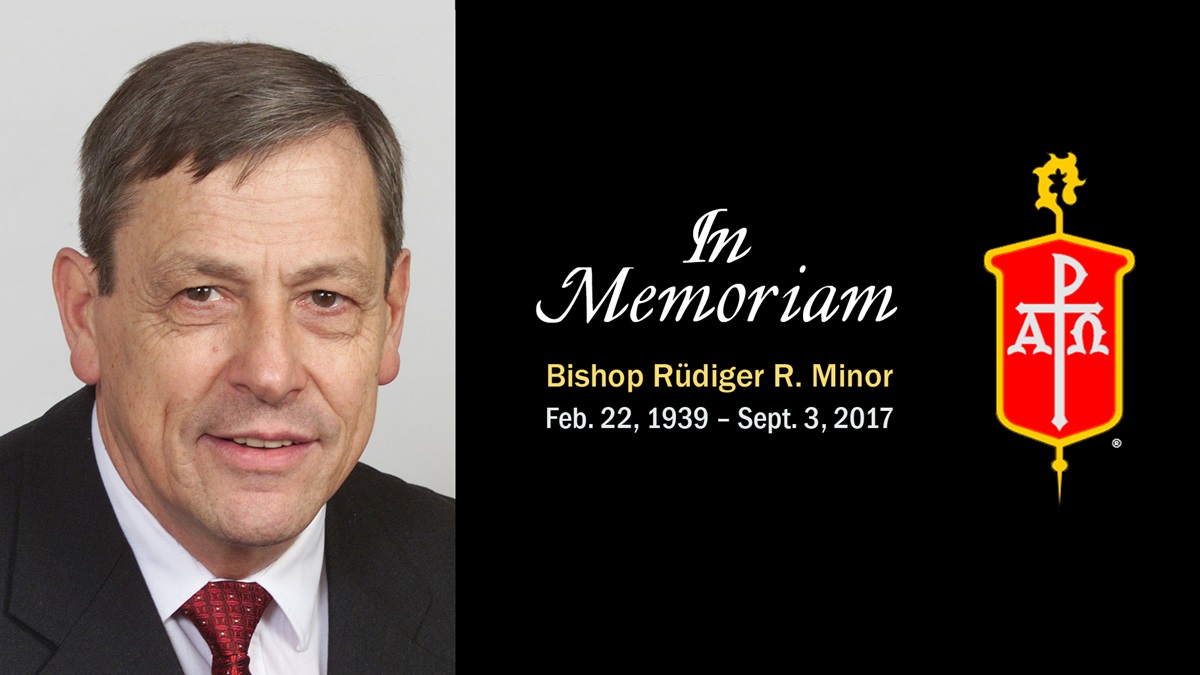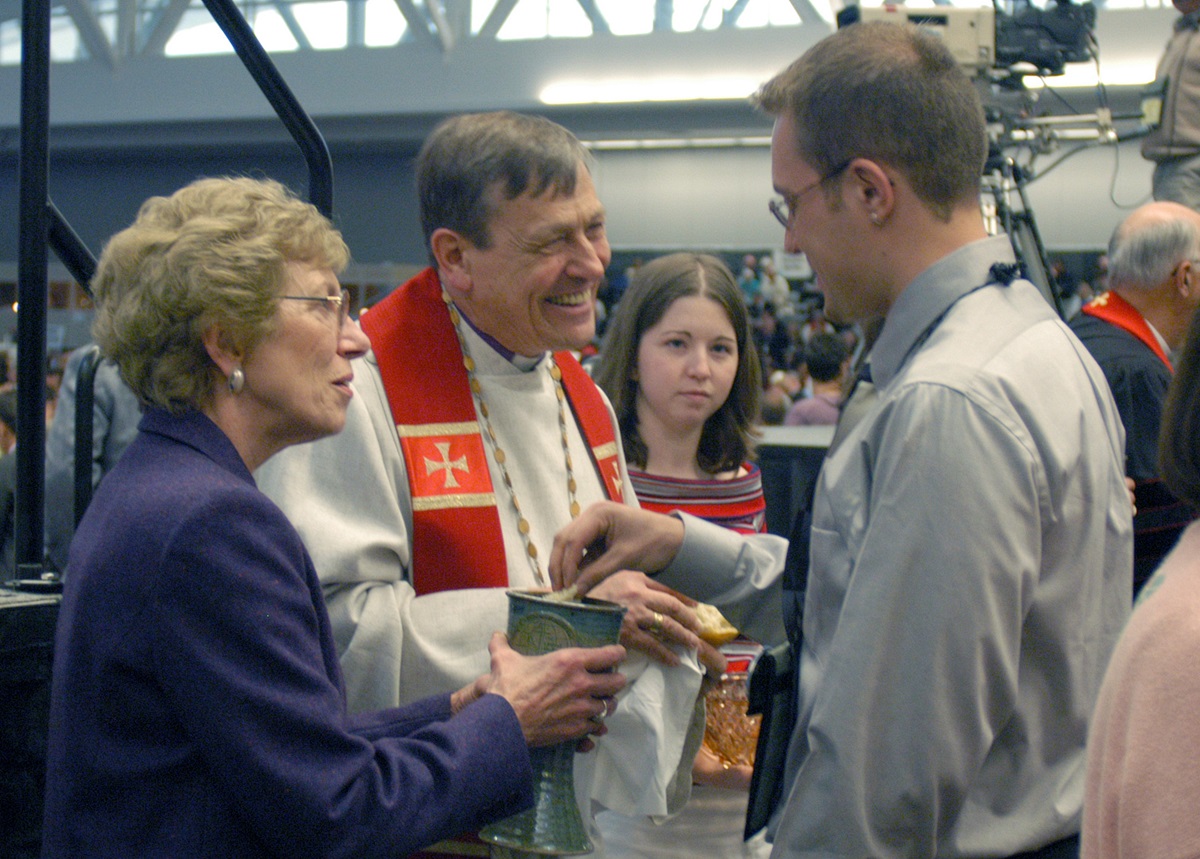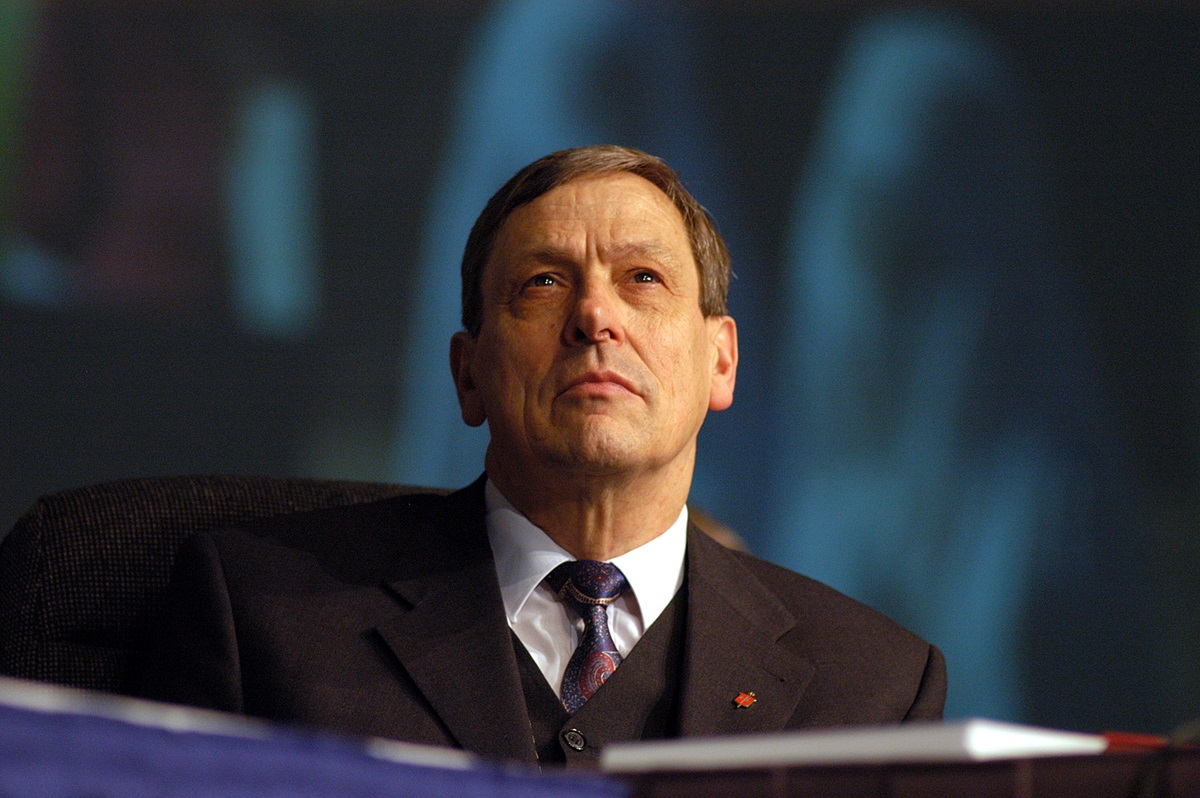When Bishop Rüdiger (Ruediger) R. Minor became the first United Methodist bishop to reside in Moscow, he was uniquely qualified to head a mission to oversee the denomination’s fledgling congregations there and in other parts of the former Soviet Union.
As a child, one of his earliest memories was of the Russian Army taking up permanent residence in East Germany.
Later, as an episcopal leader during a time of political transition and the reunification of Germany, he learned from Russian Christians, he said, about the need for a broader reconciliation and then promoted ecumenical cooperation during his tenure in Moscow.
As he told a group of Russian doctors and nurses in 1992, “it was not easy for both of our peoples in the last few decades to work and live with each other.”
But Minor’s own experience had showed him the church could bridge that gap.
“It was the Methodist Church that helped me to meet Christ and taught me the gospel and its consequences for my life as a youth in communist East Germany,” he explained, years later, while talking about the importance of global representation within The United Methodist Church.
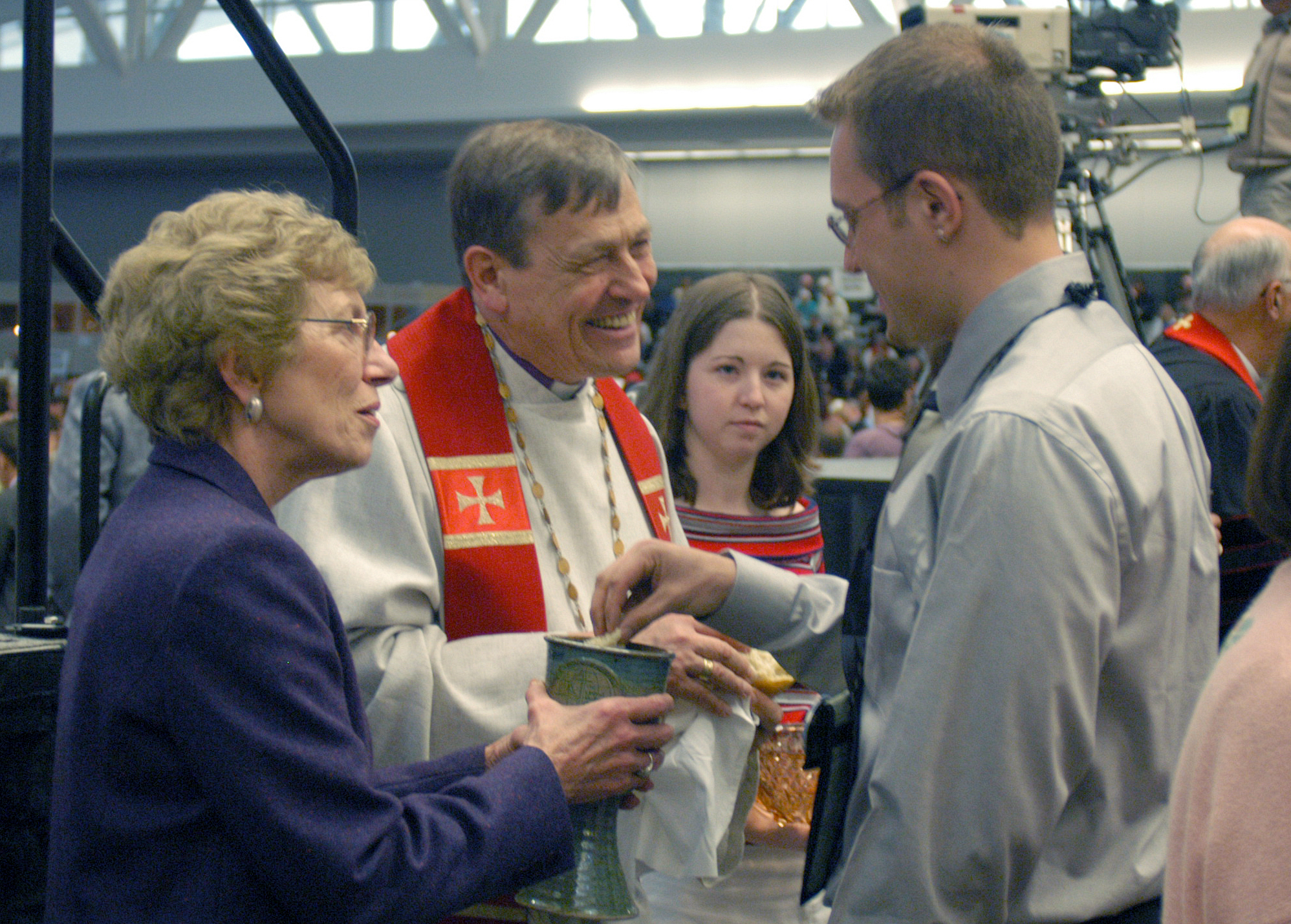
United Methodist Bishop Ruediger R. Minor (center) serves communion during the opening worship of the United Methodist Church's 2004 General Conference in Pittsburgh. Photo by John C. Goodwin, UMNS.
Minor, who was retired and living in Dresden, Germany, died Sept. 3, the United Methodist Council of Bishops announced. He was diagnosed last year with ALS or amyotrophic lateral sclerosis, a progressive neurodegenerative disease.
“We trust that Rüdiger is at home now in God’s love and grace. He was prepared and confident and has put his earthly and heavenly life into God’s hands,” said Bishop Harald Rückert, the current residential bishop of Germany, in the council’s press release.
Thomas Kemper, a German native and top executive of the United Methodist Board of Global Ministries, called Minor a “great friend and mentor.” Germany “has lost an exceptional leader,” he said.
“He was incredible in bridging the gap between east and west after the fall of the (Berlin) wall and the Iron Curtain,” Kemper added.
Minor was born on Feb. 22, 1939, in Leipzig, Germany, to a Methodist family. He was a graduate of Karl Marx University there and the United Methodist Theological Seminary in Bad Klosterlausnitz, where he became a full-time faculty member in 1976 and served as seminary director from 1984 to 1986.
Minor was elected a bishop in the German Democratic Republic on May 22, 1986, and assigned to the Dresden Area. He was particularly supportive of the initiatives of young people during this period of “peaceful revolution” — leading to the fall of the Berlin Wall and the reunification of East and West Germany on Oct. 3, 1990 — and called upon the churches to stand by these new social forces for change.
The Rev. Robert Morwell, currently pastor at First United Methodist Church in Carterville, Ill., first got to know Minor during that period. At the end of 1986, after his congregation at the time had a joint worship service with an East Berlin congregation via speakerphones, Morwell had the idea of repeating that connection on a grander scale.
He helped create and produce a joint Christmas Eve service between United Methodists in Illinois and East Berlin that was broadcast in 1990 by ABC-TV. On the German end, the groundwork was laid by the bishop. “Bishop Minor interceded on our part with the East German government. He got them to agree before ABC did,” Morwell said. “That attested to his negotiating skills.”
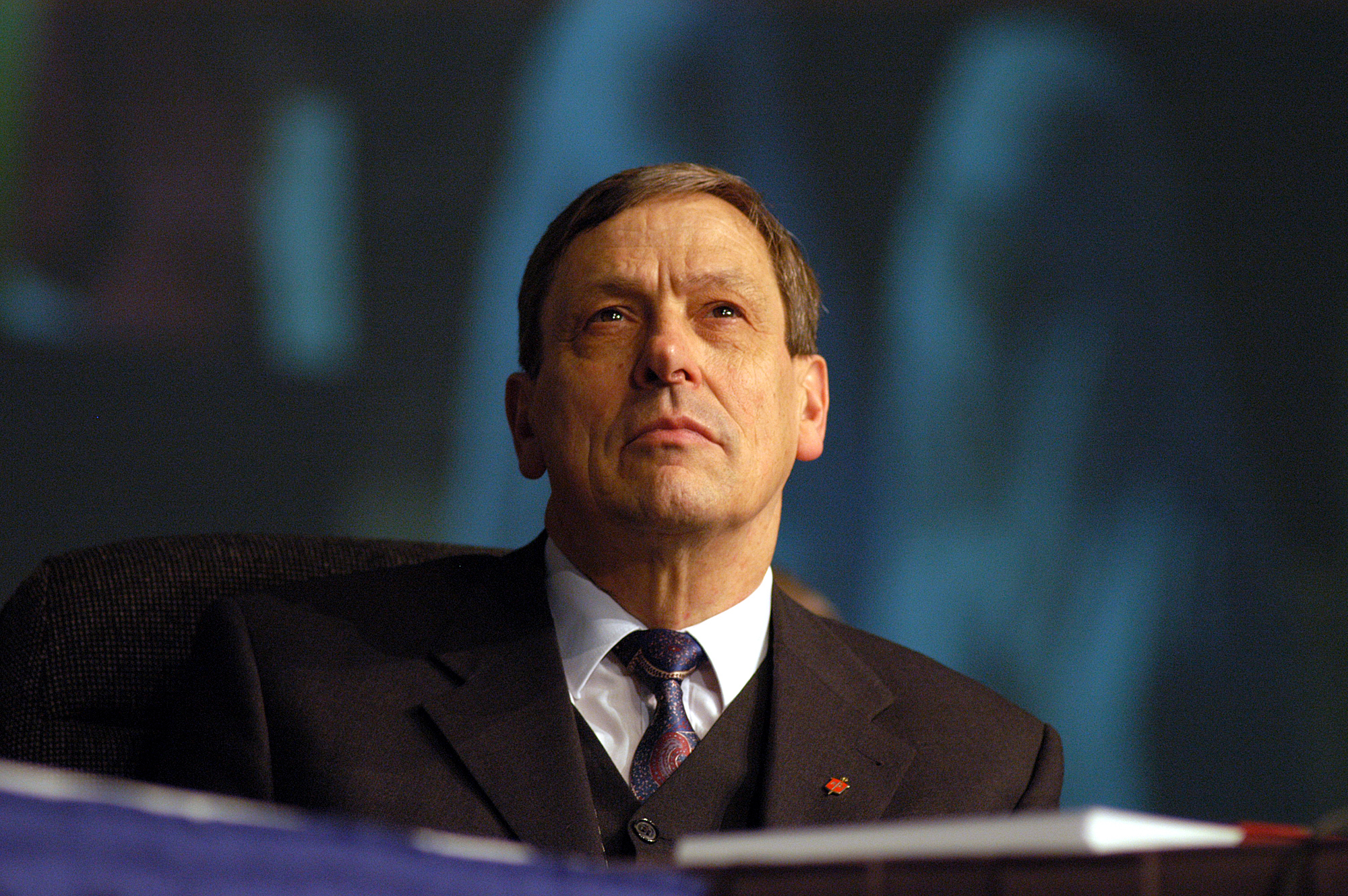
United Methodist Bishop Ruediger R. Minor listens to the episcopal address during the opening day of the denomination's 2004 General Conference in Pittsburgh. Photo by John C. Goodwin, UMNS.
By then, he had become better acquainted with Minor and his wife, Gerlinde. He invited Minor to preach at his home church when the bishop was attending the 1988 United Methodist General Conference in St. Louis and later visited East Germany. “He was gracious and friendly,” Morwell recalled. “I was struck by his humility and his humor.”
What also impressed Morwell, he said, was the way that Minor tackled his assignment in Moscow “with grace and dedication.”
On Aug. 16, 1992, Minor was consecrated as the episcopal leader for United Methodists in the Commonwealth of Independent States, which included Russia and neighboring countries.
The service took place in an auditorium in Moscow that also served as worship space for a Russian-Korean United Methodist congregation. Among the 160 participants were representatives from new Russian congregations, pastors from Estonia, Latvia and Europe, a Russian Orthodox priest and 40 United Methodists from the U.S.
The Russian Orthodox presence was important because ecumenical cooperation was one of the goals of the new mission established by the United Methodist Board of Global Ministries. United Methodists already were cooperating with the Russian Orthodox Church on projects involving humanitarian aid and religious education.
The following year, Minor was formally elected bishop of the Eurasia Area by the North European Central Conference. In 1993, the Russian United Methodist Church received state approval and a theological seminary was established in 1995.
After 15 years of work, the structure of the church was formed into 12 districts: Volga, Moscow Southern, Moscow Northern, Saint-Petersburg, Western, Novgorod, Ural, Siberian-Far East, Central Asia, Northern-Caucuses, Central Black Soil, Ukraine and Moldova. Now, there are more than 100 churches and Bible groups.
Minor continued to serve in Moscow until his retirement in 2005. He also was the president of the Council of Bishops from 2003 to 2004.
A funeral service will take place Sept. 14 at Johannisfriedhof in Dresden. Minor is survived by his wife, Gerlinde, three children and eight grandchildren.
“We continue to lift up in our prayers Gerlinde and all the family. May God comfort them with comfort that only He can provide and peace beyond our understanding,” said Rückert.
Bloom is the assistant news editor for United Methodist News Service and is based in New York.
Follow her at https://twitter.com/umcscribe or contact her at 615-742-5470 or newsdesk@umcom.org. To read more United Methodist news, subscribe to the free Daily or Weekly Digests.
Like what you're reading? Support the ministry of UM News! Your support ensures the latest denominational news, dynamic stories and informative articles will continue to connect our global community. Make a tax-deductible donation at ResourceUMC.org/GiveUMCom.

